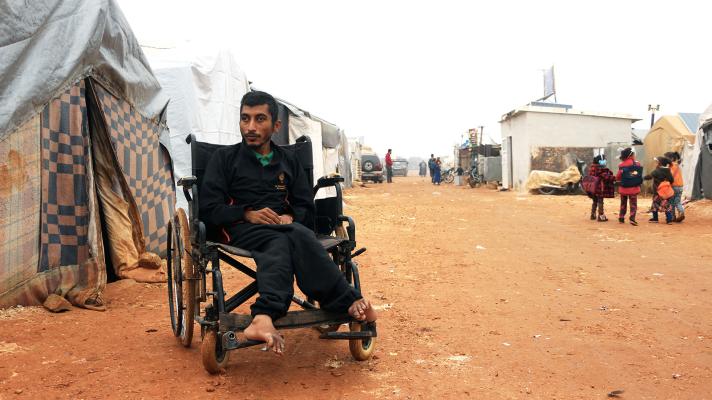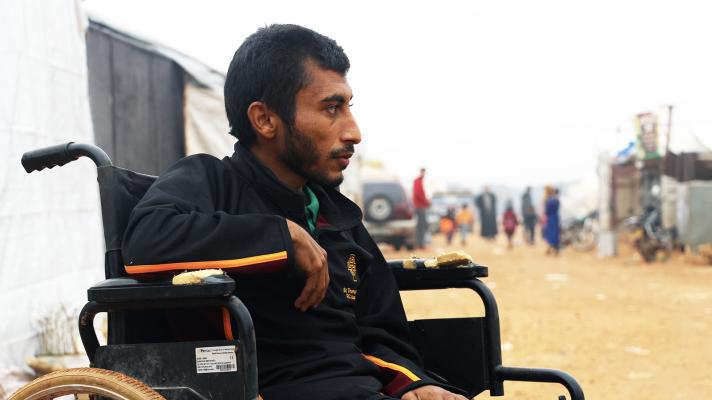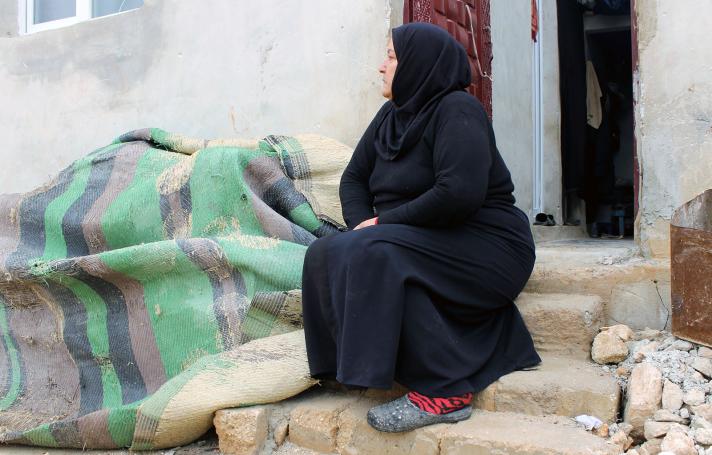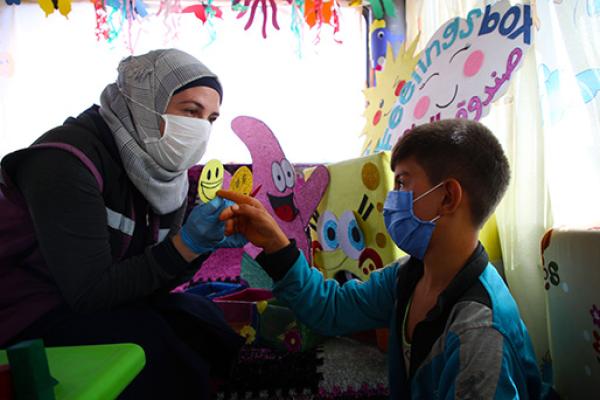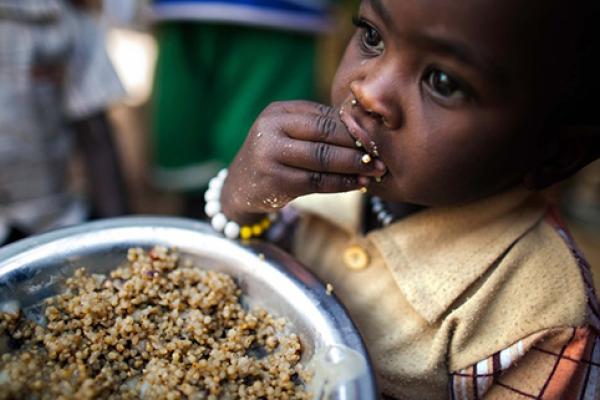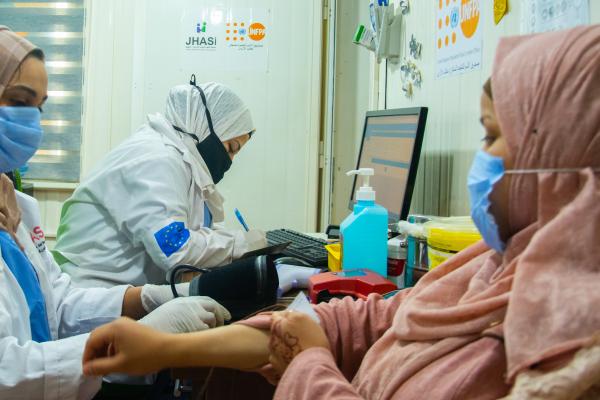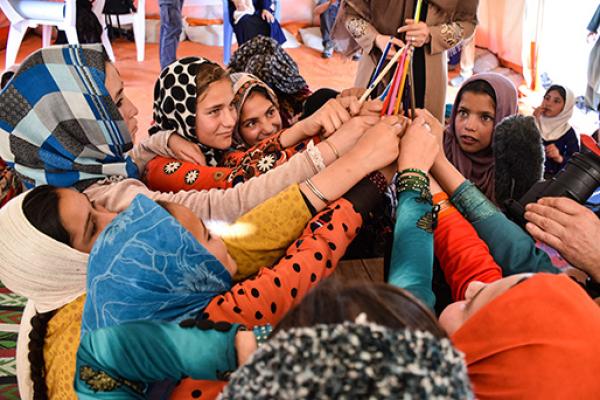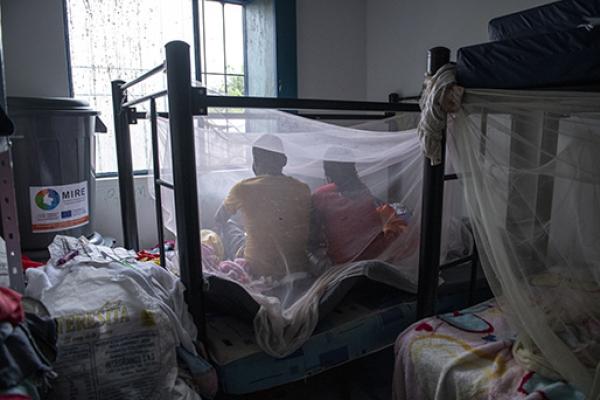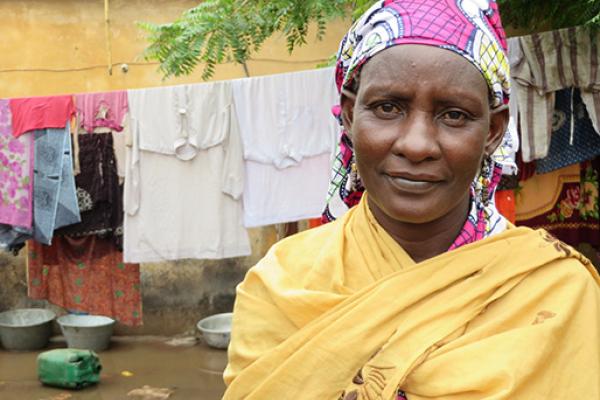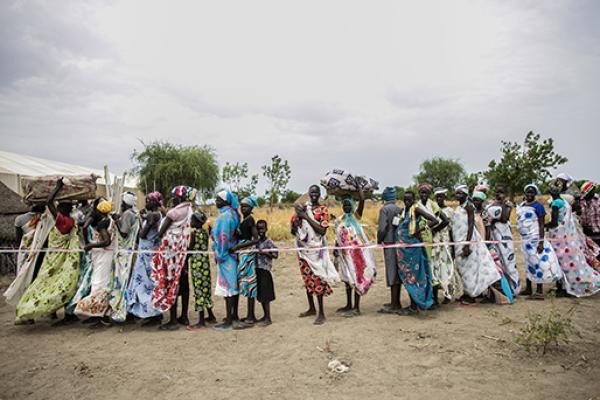In northwest Syria, more than 4 million people rely on humanitarian aid to meet their basic needs. Food, medicine, and other vital supplies are funnelled through Bab al-Hawa – Syria’s last humanitarian aid corridor and the only lifeline for civilians in this part of the country.
With humanitarian needs at their highest after almost 12 years of conflict, the EU advocates again for the unimpeded delivery of impartial humanitarian aid to all those in need. UN Security Council resolution 2642, which allows the delivery of humanitarian aid into Syria, is up for a vote to extend its mandate beyond 10 January 2023.
The EU promotes the use of the most direct routes to reach people in need, including across the border from Türkiye and across frontlines through crossline assistance. The non-renewal of the resolution, amid a particularly harsh winter, would be catastrophic for millions of people in northwest Syria.
“If the aid stops, the situation will get worse and worse. People will die, both young and old”, Ramda, a disabled man living in a camp in northwest Syria, said.
“A few weeks ago, I was sick in the hospital, and there were no drugs. The doctor said that if there was enough support and supplies, he could give me medicine, but they could only give me a prescription. I had a severe cough and chest ache.”
For Ramda, the transport of aid through the crossing is a literal lifeline. Every month, hundreds of trucks loaded with aid supplies cross the border from Türkiye to northwest Syria at Bab al-Hawa.
This corridor is once again under threat. On 12 July last year, the UN Security Council (UNSC) agreed to renew the authorisation for the Bab al-Hawa corridor for 6 months, against previous renewals of 12 months.
As this authorisation nears its end, the UNSC will again vote on whether to renew it, leaving the lives of ordinary Syrians hanging in the balance.
Ramda continued: “This is not just my case, rather the majority of people here in the camp. All the people receiving medicine will suffer if they do not have access to it anymore. If we receive the right medicine, at least we have a chance of living.”
3.1 million people need healthcare assistance in Syria’s northwest, which has been suffering from a continued lack of doctors, hospitals, and medicines for years. A failure to renew the resolution that keeps Bab al-Hawa open would put millions of lives at risk, worsening an already precarious situation.
“If they stop supplying food kits and medicines, it will be catastrophic”, Ramda said. “The conditions in the camp are so bad that I hope they will keep supporting us until we can return to our homes and villages. I hope my voice will reach everywhere. I call on people to come and see what living in a tent looks like.”
Sabah, who lost 4 of her sons, her home, and her livelihood during the war, also lives in a camp for displaced Syrians and suffers from a debilitating health condition.
She has severe arthritis that worsens in the cold weather and relies on humanitarian aid to endure the biting winter. “Most of the people in our camp depend on humanitarian aid”, Sabah said. “We are facing tragic living conditions. If the humanitarian aid stops, the situation in the camp will deteriorate even more.”
For the millions of Syrians like Ramda and Sabah who rely on the aid channelled through Bab al-Hawa, this lifeline is their only means of support. Accessing basic services such as health care and food is a major challenge without the financial resources to provide for their families.
Sabah explained: “Financially, this is the worst year so far: some people cannot even afford bread.”
The closure of Bab al-Hawa will have catastrophic repercussions for those in need. Adnan, an aid worker in northwest Syria, is acutely aware of the importance of keeping this lifeline open.
“It’s not just an international border crossing. It is a humanitarian crossing that helps to preserve the lives of millions of vulnerable people,” he said. “Extending the resolution to permit the entry of aid through Bab al-Hawa is a real test of our humanity.”
The EU and its Member States are the leading donors of international aid to those affected by the conflict in Syria.
Since the crisis started in 2011, the EU has mobilised more than €27.4 billion to support the most vulnerable Syrians inside the country and across the region.
The EU is providing support to its humanitarian partners to address the needs of millions in the region and across Syria, from food to health, education to shelter and protection.
Publication date: 06/01/2023

